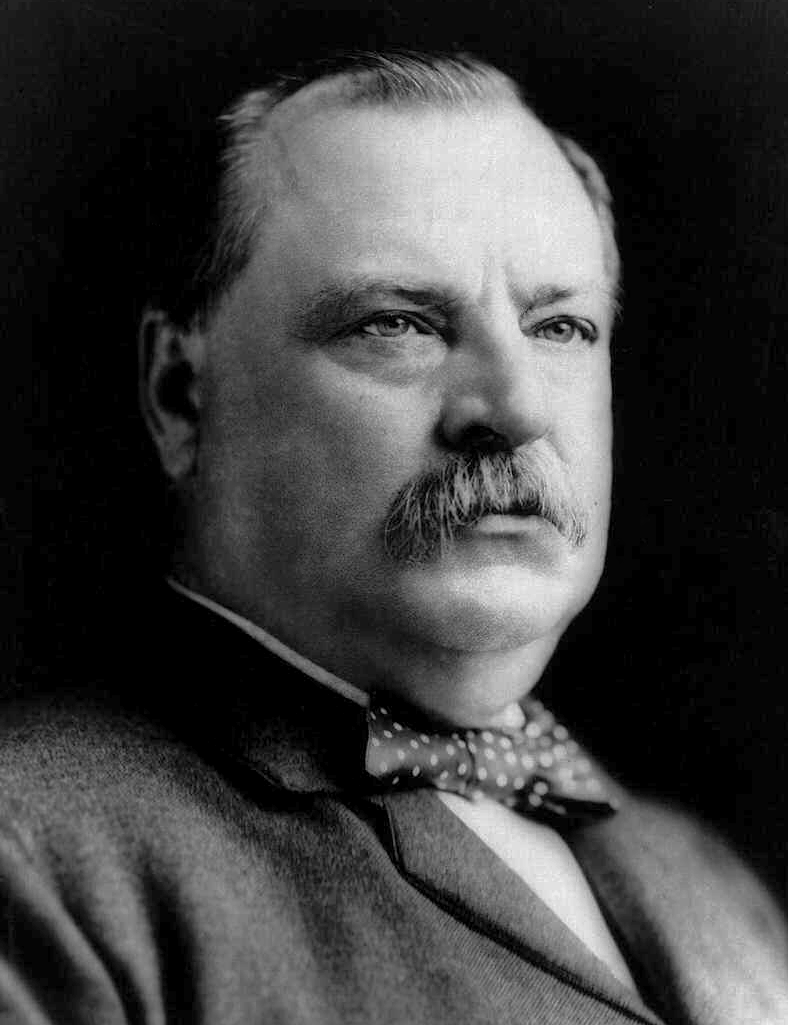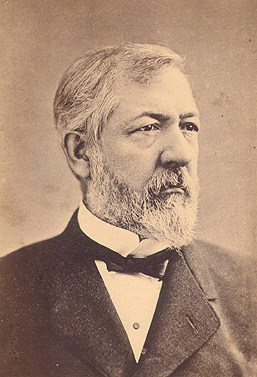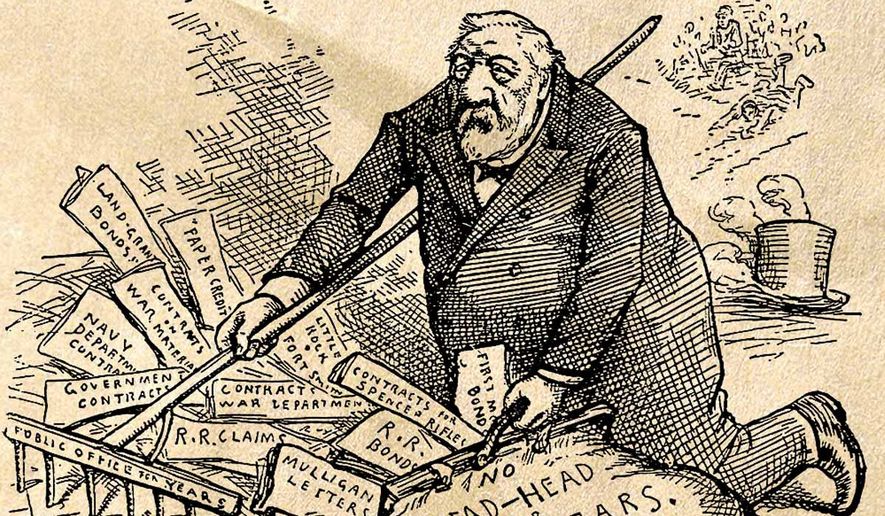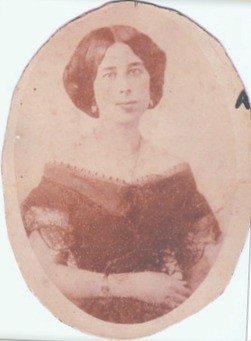In America, as everywhere else, politics and scandal are coupled like ham and eggs. Outrage at Donald Trump’s ‘on mic’ locker room banter, might suggest that such revelations are novel. Not at all!

Voters in the American Gilded Age[1], just like voters in this Digital Age, had every reason to regard an honourable politician as a paradox. The founding fathers’ lilies were no whiter than those of their modern counterparts. From Thomas Jefferson’s lenghty relationship with his slave, Sally, to Bill Clinton’s non-affair with the blue dress – sex scandals have always been hot news, often trumping weightier issues of national importance. Some presidents succeeded in keeping their indiscretions hidden during their lifetimes. Such secrecy is impossible in an age of networking and social media.
So, the audio of Donald, lewdly trumping about forcing himself on women, was too much for the Grand Old Party. A swelling chorus of coast to coast rebellion, Republican stalwarts repudiating their own candidate – unheard of in American politics! Not so! [pullquote]He had written a letter accepting a bribe, which ended with the words; ‘kindly burn this letter’. Unfortunately for Blaine the letter was not burned[/pullquote]
Grover Cleveland was a forty-seven-year-old genial bachelor when, in 1884, he was thrust into national prominence. He received the Democratic nomination for the presidency. Grover excelled at two things, working and eating. His successful law practice and flawless reputation in Buffalo, New York, verified the former, while the 22 stones shovelled into his average frame confirmed the latter.

There was little about him that was cultured, sophisticated or presidential. Gruff of manner, he cussed openly and was more at home in a saloon than a drawing-room. With a track record of beating corruption, he cruised into public life without even trying. Barely, had he stepped into the Governorship of New York, when Democrats began talking of him as presidential material. They hoped in an era of political guile, to contrast a coarse-hewn sincere neophyte, who had never even seen the nation’s capital, with a smooth-talking Washington insider. The dapper Republican James G. Blaine, former Speaker of the House, Secretary of State and senator from Maine was his Republican opponent. Nicknamed the Plumed Knight, Blaine’s reputation was tainted. [pullquote]Charging him with depravity and decadence, the electorate, they said, had a choice between the brothel and the family, between lust and law[/pullquote]
Known as Slippery Jim within the party, he was said ‘to wallow in spoils like a rhinoceros in an African pool.’ He had written a letter accepting a bribe, which ended with the words; ‘kindly burn this letter!’ Unfortunately for Blaine the letter was not burned, prompting the chant:
‘Blaine, Blaine, James G. Blaine, Continental liar from the state of Maine.’

Like Trump, Blaine was regarded as an unfit candidate by several Republican grandees. Known as mugwumps[2], the grandees bolted. Mark Twain, a vociferous mugwump, explained that they were ‘putting America first’. They wanted an end to the Gilded Age spoil system. If that involved supporting Grover Cleveland, then so be it.
Cleveland’s meteor was soaring when the Buffalo Telegraph dropped its salacious bomb. It headlined a sordid tale of paternity and pay-off, alleging that Grover the Good had fathered an illegitimate child. Republican newspapers gleefully picked it up and a national scandal ensued. Pastors and priests raced to their pulpits. Democratic insiders privately wrung their hands and panicked. Grover, however, did not pursue that age-old, ignoble tradition of evading or denying the charges. Neither did he wait, hoping for the accusation to lose momentum or the public to lose interest. No. He did the unimaginable, he told the truth. The truth was as follows: a decade before, he had been friendly with a widow named Maria. When she became pregnant, Grover accepted responsibility, though he was never sure of his paternity. She was liberal with her favours. Documented proof showed that he had assisted the child financially and had tried to set Maria up in business.
Republicans went after him like bloodhounds on full scent. Charging him with depravity and decadence, the electorate, they said, had a choice between the brothel and the family, between lust and law. They sent choirs of children to Cleveland’s rallies to taunt: ‘Ma, Ma, Where’s my Pa?’ Democratic newspapers hurried to Cleveland’s defence. In his New York World, Joseph Pulitzer salvoed:
‘If Grover Cleveland had a whole family of illegitimate children…. he would be more worthy than Blaine…agent of corruptionists, monopolists and enemies of the Republic.’

Impressed by his candour, many voters were willing to give Cleveland the benefit of the doubt. This combined with a last-minute blunder by Blaine’s campaign gave him a needed boost. On Saturday, October 29th, six days before polling, Blaine was billed to speak in New York. His host, introducing the candidate, delivered a robust verbal assault on the Irish immigrant community (the Mexicans of their day). ‘We are Republicans,’ he said, and don’t propose to leave our party and identify ourselves with the party of ‘Rum, Romanism and Rebellion.’ At mass, next day, thousands of New York Catholics heard about his remarks. Five days later, Grover Cleveland squeaked into office. Jubilant Democrats took to the streets shouting: ‘Hurray for Maria, Hurray for the kid, I voted Cleveland, I’m damned glad I did.’
In the weeks that followed the Republican chant; ‘Ma, Ma where’s my Pa?’ was gleefully returned with the riposte; ‘Gone to the White House, Ha, Ha, Ha!’
Footnotes
[1] The years after the American Civil War, roughly from 1870 to the turn of the century, became known as the Gilded Age. Mark Twain was the first to describe them thus, suggesting that the period was glittering without, but corrupt within.
[2] Mugwumps were a group within the American Republican Party, drawn together by Henry Adams in 1884, to reject the financial corruption associated with James G. Blaine. In that close election, the mugumps were credited with magically turning New York State to Grover Cleveland. The term is Native American in origin and loosely means important person or kingpin. It has become a byname for a party bolter in American politics.
In Harry Potter, the term is pirated to describe a member of the Internal Confederation of Wizards.
In William S. Burroughs’ Naked Lunch, the term is used to describe a “demure” reptillian beast who exerts a considerable level of influence over society.
